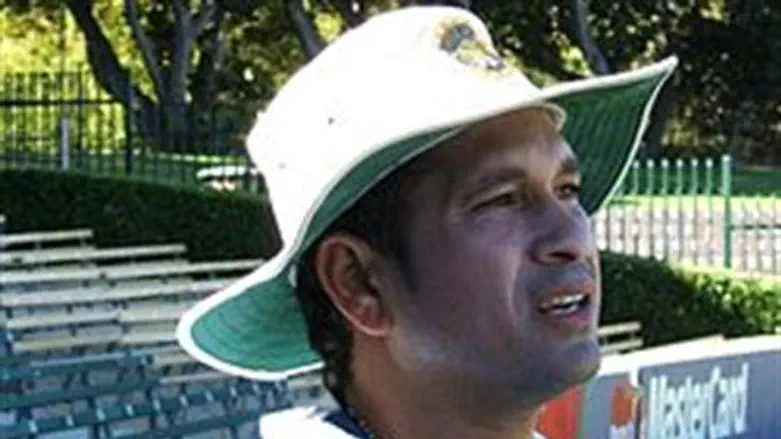
The relationship between sports matches and diplomacy can cut both ways. Ping pong matches between the United States and the People's Republic of China were a harbinger of the rapprochement between the two countries. In Central America, Honduras and El Salvador once went to war over a football game. Now an International Cricket Cup semifinal has matched neighboring India and Pakistan.
Indian Prime Minister Manmohan Singh invited his Pakistani counterpart, Yousuf Raza Gilani, to be his guest and watch the match in India. Both Prime Ministers met and shook hands with players of the two national teams. Adding poignancy, the match was held in Punjab, divided between India and Pakistan. Both leaders hail from that region.
The summit would normally have attracted considerable attention; given the match between 2 cricket-crazed nations, the attention was stratospheric. The match is the number one event in Pakistan, with everybody involved, from Pakistani Supreme Court judges who cleared the court to set up a giant flat screen for themselves and court workers, to tribesmen in Waziristan who cleaned their rifles and readied explosives in the hope of using both following a Pakistani victory.
Given the ratings for the match, advertising revenue was expected to exceed $1 billion. This not only reflects the importance of the game and the gigantic viewing audience, but also the increased affluence of at least the Indian part of the subcontinent.
The idea of cricket diplomacy is not new. In 2005, Singh and then-Pakistan President Pervez Musharraf watched a cricket match together in a New Delhi stadium. In 1987, Indian Prime Minister Rajiv Gandhi and Pakistan Gen. Muhammad Zia ul-Haq attended a similar game in Jaipur. Despite hopes, such overtures did not cure the long-lasting enmity between the 2 nuclear neighbors.
Nevertheless, there were signs that preceding the invitation, India and Pakistan were trying to patch up relations that were virtually severed following the 2008 Mumbai attacks by terrorists who came from Pakistan.
The two countries have restarted peace talks that will focus on issues ranging from terror to water (Pakistan is concerned that Indian dams threaten Pakistan's water supply). The interior ministers of the two countries held talks to discuss counterterrorism, the drug trade and counterfeited currency.
Indy's BJP opposition warns against being misled by the "good feeling" on the field if it was not going to be supplemented by a "terror-free relationship" only if Pakistan prevented terrorism from using its soil as a base could meaningful talks resume. The BJP claimed that Pakistan was dragging its feet in legal proceedings against the Mumbai terrorist masterminds.
Pakistani statesmen also warned that the match could not resolve differences as long as India refuses to budge on the issue of Kashmir. Speaking in Washington before a conference sponsored by the Carnegie Endowment for International Peace former Pakistani Senator Javed Jabbar called Kashmir "essential to Pakistan's security and identity,". Jabbar also noted that security-wise Pakistan had more to fear from India than vice versa given the fact that the Indian defense budget exceeded the entire Pakistani budget.